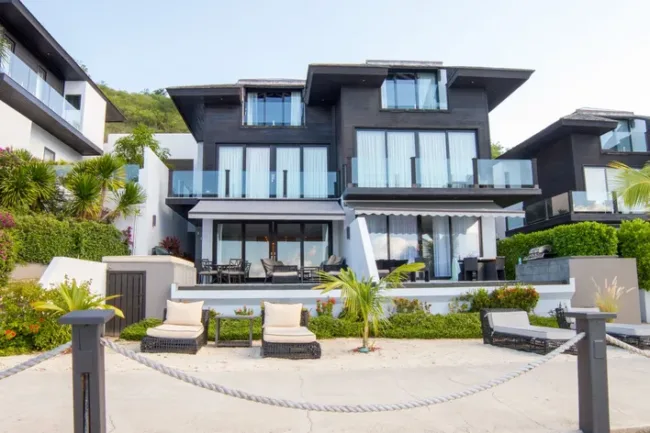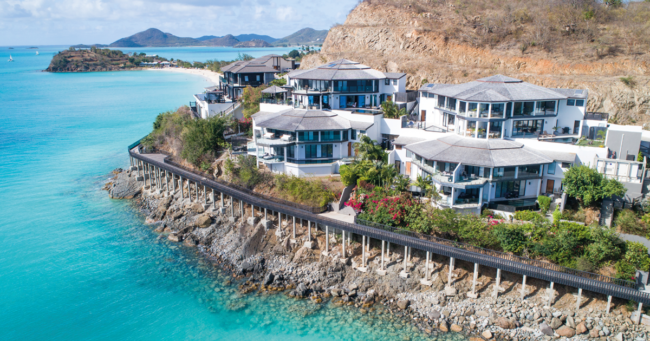
Antigua and Barbuda, a twin-island nation nestled in the heart of the Caribbean, is increasingly drawing the attention of expatriates, investors, and families seeking a relaxed, sun-soaked lifestyle paired with international opportunity. From pristine beaches to business incentives, this guide explores everything you need to know about moving to Antigua and Barbuda.
Life in Antigua and Barbuda
Life in Antigua and Barbuda is often described as idyllic. With over 365 white-sand beaches, a laid-back culture, and year-round warm weather, the islands offer a high quality of life that balances relaxation with opportunity. English is the official language, and the local currency is the Eastern Caribbean dollar (XCD), although U.S. dollars are widely accepted. The islands blend Caribbean charm with British colonial influence, evident in the architecture, cuisine, and social norms.
The pace of life is slower than in most urban centers, making it ideal for those seeking a peaceful environment. Locals are friendly and welcoming, and the expat community continues to grow, especially in Antigua. Safety levels are relatively high, and healthcare is available both publicly and privately, though many expats opt for international insurance and travel abroad for complex procedures.
Moving to Antigua and Barbuda

Relocating to Antigua and Barbuda is relatively straightforward compared to many other nations, especially if you’re from North America or Europe. Most nationalities can enter the country visa-free for up to 90 days, with the possibility of extensions. For long-term stays, options include work permits, residency, and the well-known Antigua and Barbuda Citizenship by Investment Program (CIP).
The CIP is one of the fastest and most affordable programs in the Caribbean. It allows qualified applicants to gain citizenship within a few months through a donation to the National Development Fund, a real estate investment, or a business venture. Citizenship grants visa-free or visa-on-arrival access to over 140 countries, including the UK and the Schengen Zone.
If you’re moving for work or retirement, you’ll need to prove income or employment. Relocation companies and immigration lawyers on the island can help navigate bureaucracy and paperwork.
Business in Antigua and Barbuda
Antigua and Barbuda offers a favorable environment for entrepreneurs and international investors. With no capital gains or inheritance taxes, and a relatively low corporate tax rate, the country is positioning itself as a business-friendly jurisdiction. The government actively encourages foreign investment, especially in tourism, real estate, fintech, and sustainable development.
Starting a business is straightforward, particularly for those with citizenship or residency. The Free Trade and Processing Zone allows foreign companies to operate tax-free in designated areas. Antigua has also become a digital nomad hub, with its “Nomad Digital Residence” visa allowing remote workers to live and work in the country for up to two years.
Internet infrastructure is solid in urban areas, and international banking is accessible through both local and offshore institutions. While bureaucracy can be slower than in major financial centers, the opportunities for early movers are substantial.
Real Estate in Antigua and Barbuda
The real estate market in Antigua and Barbuda is thriving, particularly among foreign investors and retirees. Whether you’re seeking a luxurious beachfront villa, a modest island home, or land for development, there are diverse options to fit different budgets.
Foreigners can purchase property with a Non-Citizen Landholding License (NCL), which generally takes 3–6 months to obtain. However, those who invest in approved real estate projects under the Citizenship by Investment Program are exempt from the NCL requirement, making it a fast track to ownership and citizenship.
Popular areas for investment include English Harbour, Jolly Harbour, and Hodges Bay in Antigua. Prices range from $250,000 for condos to multi-million dollar estates. Most properties are sold furnished and are ready to rent out to tourists, offering a return on investment through short-term rentals. Barbuda, being less developed, has more stringent land ownership rules but is ideal for eco-tourism or long-term development projects.
Kids and Family Life in Antigua
Antigua is a wonderful place to raise children, especially for families seeking a slower, safer, and more outdoor-oriented lifestyle. The island offers a mix of private and public schools, with the former being the preferred choice among expats. International schools follow British or American curricula and cater to students from pre-K through high school.
Children enjoy year-round access to the outdoors, including sailing, tennis, cricket, and beach activities. Healthcare for children is adequate for general needs, and pediatric services are available in the capital, St. John’s. While the local job market can be limited for accompanying spouses, many families live comfortably on remote work or business income.
Family life revolves around the community, and cultural values emphasize respect, education, and family cohesion. Holidays like Carnival and Independence Day are family-friendly events filled with music, dancing, and food.
Healthcare in Antigua and Barbuda
Healthcare in Antigua and Barbuda is a mix of public and private services. While public hospitals like Mount St. John’s Medical Centre provide general care, many expats prefer private clinics for faster service and higher standards. The country has limited specialized care, so for complex conditions, travel to the U.S. or another country may be necessary.
Many expats take out international health insurance policies that cover both local and overseas treatment. There are also dental and optical clinics on the island, though again, more specialized services might require travel abroad.
Cost of Living
The cost of living in Antigua and Barbuda is moderate to high, depending on lifestyle. Groceries, imported goods, and dining out can be expensive due to import taxes, but local produce and seafood are affordable. Utilities like water and electricity tend to be higher than in North America or Europe, but these can be offset by the low tax burden.
Housing costs vary by location and type, with Jolly Harbour and English Harbour being on the pricier end. However, long-term rentals are available starting around $1,000 per month for a modest one-bedroom apartment.
Culture and Community
Antigua and Barbuda has a vibrant, multicultural population and a deep sense of national pride. Music, dance, and cuisine play a central role in daily life. Festivals like Antigua Sailing Week and Carnival are major events that bring locals and visitors together in celebration.
The islands also have a rich colonial history, with heritage sites like Nelson’s Dockyard and Betty’s Hope plantation offering insight into their past. The community is warm and inclusive, and many expats find it easy to integrate by participating in local events, volunteering, or joining clubs and associations.
Conclusion
Whether you’re dreaming of a peaceful retirement, exploring new business opportunities, or seeking a sun-filled family life, Antigua and Barbuda offers a compelling blend of lifestyle, investment, and community. With straightforward paths to residency or citizenship, stable governance, and an ever-growing international presence, this Caribbean nation is more than just a vacation paradise—it’s a place to call home.
